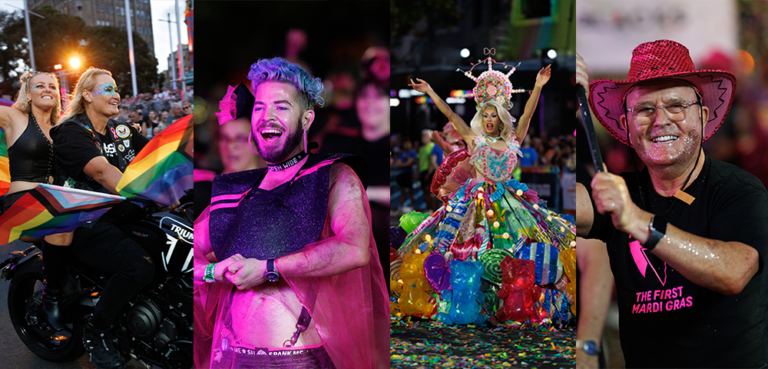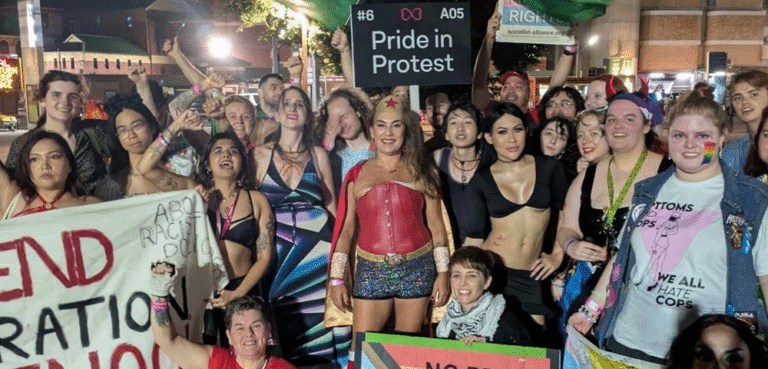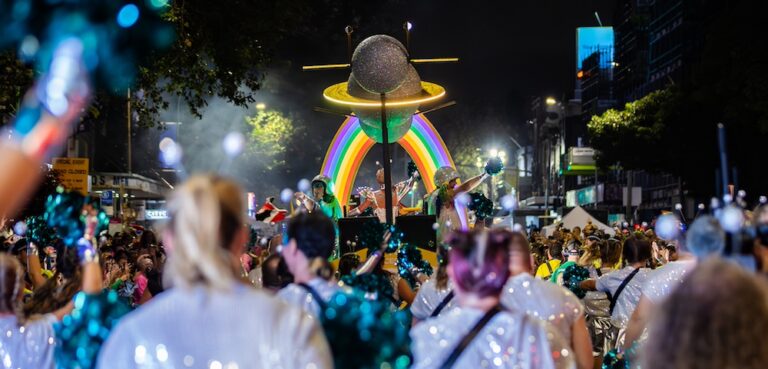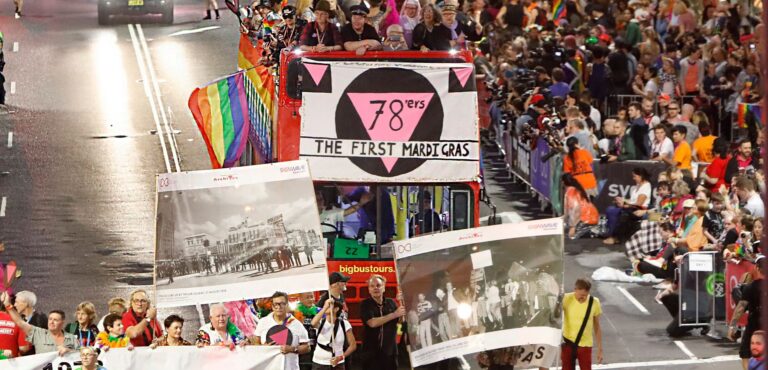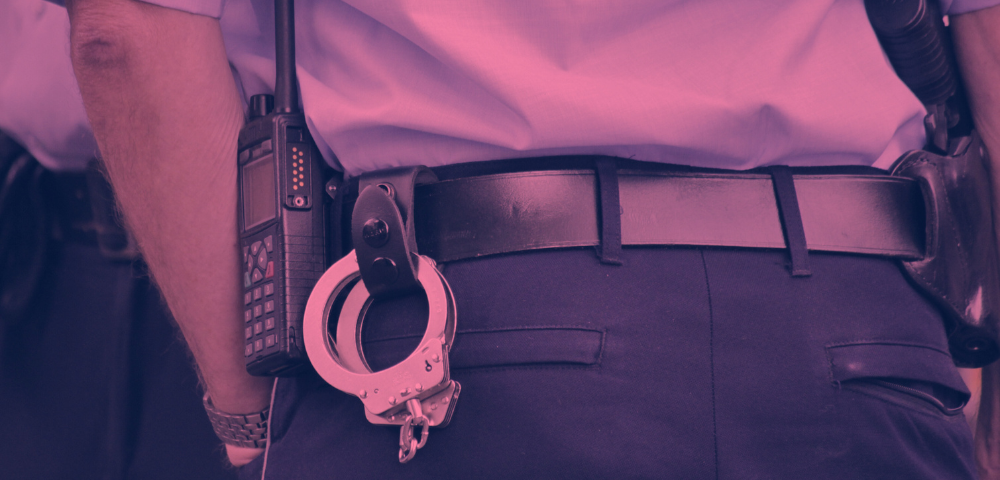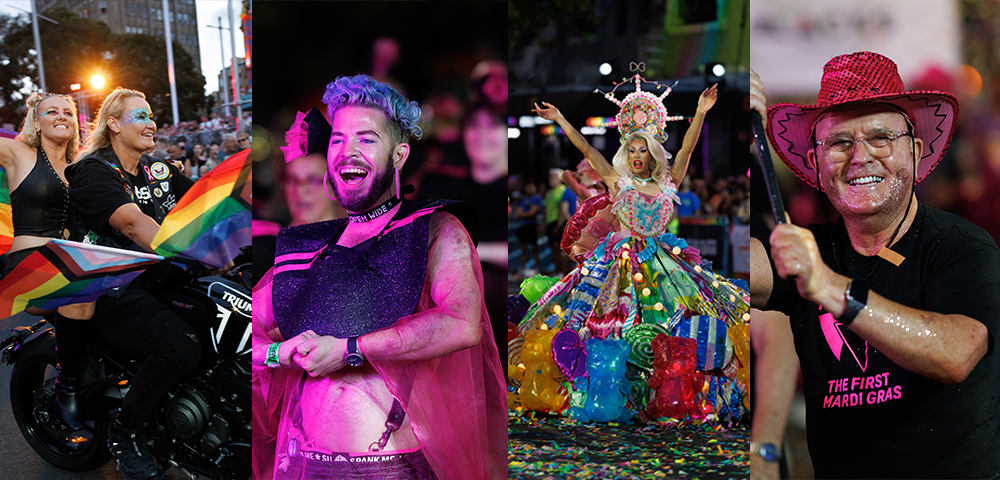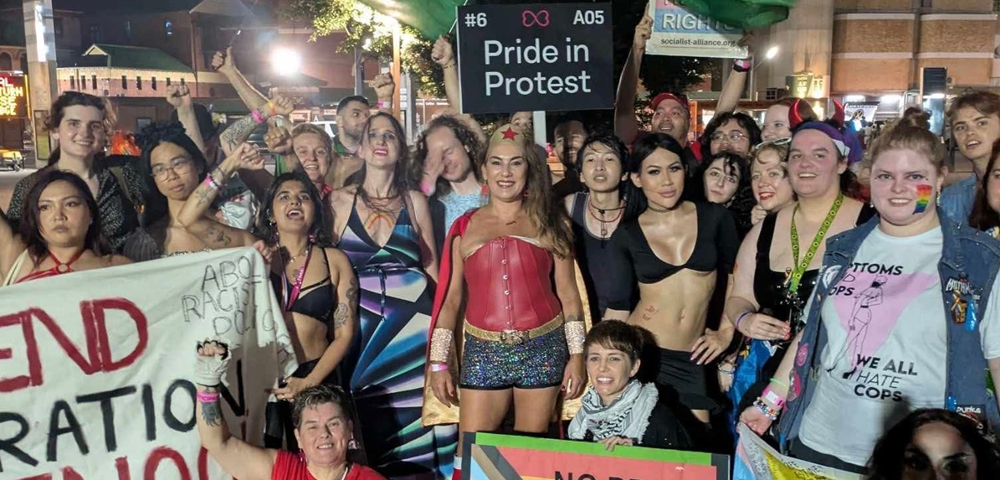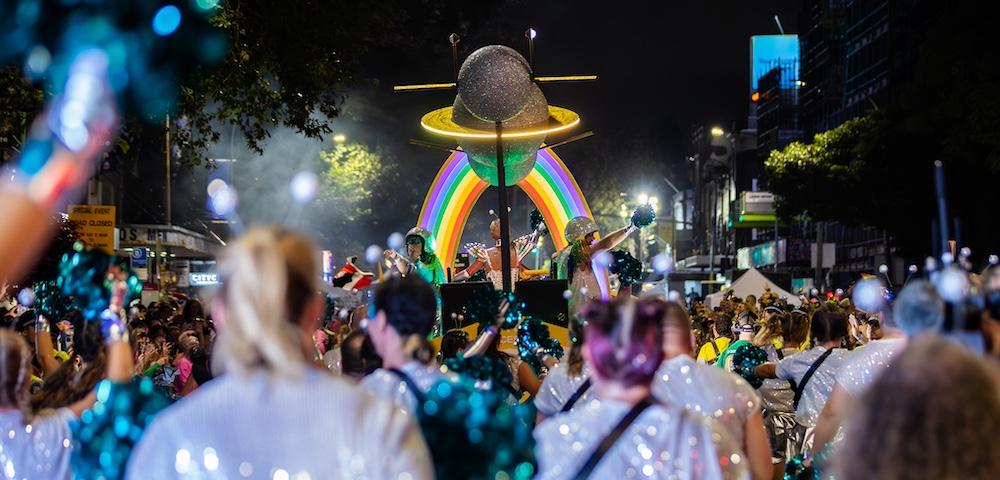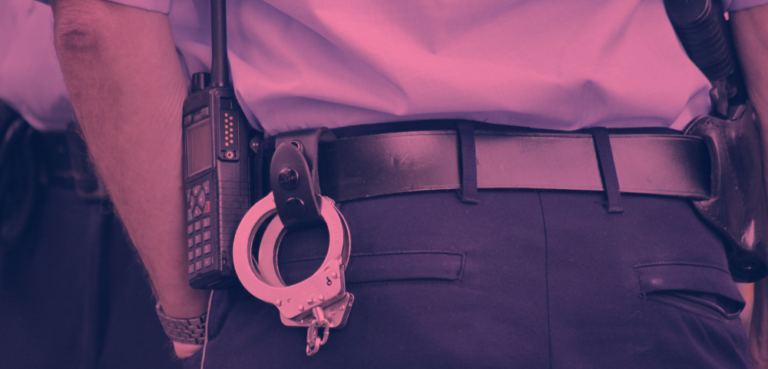
All Tomorrow’s Parties
Attendances are down, costs are spiralling and profit margins are shrinking -¦ but it seems that when it comes to dance parties, Sydney’s gay and lesbian community just can’t get enough.
y´ur dance card looks mighty full for the rest of 2002. There’s the ACON’s Hand in Hand fundraiser in June, another Pride Centre Revolution party slated for late June and Mardi Gras’ annual Sleaze Ball in October. But that’s just for starters. The Gay Games in November will serve up five big parties in the space of just over a week, and Pride will again offer its traditional New Year’s Eve bash. Along the way, there are sure to be enough pre-party warm-ups, recoveries, boutique events and special club nights to satisfy the needs of even the most hardened party-goer.
Dance parties have been staple institutions for Sydney’s gay and lesbian community for a generation now, as well as being lucrative fundraisers for our community organisations. But over the last few years the dance party landscape has changed inexorably. Ticket sales to major events have declined. Costs are increasing exponentially, especially for insurance. Competition is fierce -“ and selling a party on the strength of it being a fundraiser for a worthy cause does not seem to have the cachet it once had.
These concerns recently compelled many of our
community organisations to meet and discuss the future of their events.
Convened by Mardi Gras, the April 18 meeting was held, said chief executive officer Kelly Gardiner, to get a general idea about how everyone was feeling about the economy of fundraising and dance parties.
And what was that general feeling?
Fairly gloomy, she said.
But that does not seem to have diminished the organisations’ resolve to press ahead with staging their events. Mardi Gras is charging ahead with preparations for October’s Sleaze Ball, despite the competition for party ticket dollars offered by the Gay Games parties just one month later. Pride is continuing with their smaller Revolution style parties and hoping to develop them into money-spinners in their own right (the first Revolution party made a loss while the second one almost broke even). And just this week the AIDS Council of NSW announced that Hand in Hand would go ahead this year, despite the fact that last year’s event raised few dollars for the organisation.
There’s no secret that you don’t make as much money from dance parties as you used to, ACON President Adrian Lovney said. This Hand in Hand may well be the last, depending on how it goes.
Hand in Hand has a value other than its role as a fundraiser, Lovney argued -“ it’s a way for ACON to lift its community profile, and represents an opportunity for ACON to assist other, smaller groups.
Last year we paid out more to other organisations [from Hand in Hand] than we paid ourselves, Lovney said.
An ongoing concern for all dance party organisers, said Kelly Gardiner, is the rising premiums for insurance.
Public indemnity insurance is going through the roof, she said. We don’t know what’s going to happen in the insurance business, but [there are] definitely a few challenging years ahead for the event sector.
Mardi Gras was one of the first organisations to be hit with insurance rate hikes (to the tune of a 300% rise across all their public events), but other groups are bracing themselves now for massive increases in premiums for the next financial year. Depe}ding on how big the increases are, they could jeopardise the future of some events -“ or at very least make them less viable.
Pride secretary Neale Craker said his organisation paid $20,000 public liability insurance for the last New Year’s Eve party, and is anticipating that could go up to as much as $60,000 or $80,000 for this year’s event.
That would make an incredible hole in our budget, Craker said, adding that with the policy up for renewal on 1 July, Pride were just about to get the bad news.
Rising costs will leave Pride in a difficult spot. The directors have stated that they do not want the ticket price for the New Year’s Eve party to go over $100 (it’s currently $95) and budgets have already been trimmed.
We can’t cut more without reducing the quality of the party, Craker said.
One way forward, Gardiner and Craker suggested, would be for the community organisations to form a buyer’s club for their insurance needs. Although sharing the same insurance policies will probably not be possible, pooling together to shop for them may bring discounts.
But insurance is not the only problem facing our community organisations. Competition for the dance party dollar is fiercer than ever, with the recent announcement that Sydney 2002 Gay Games will host five separate party events during games time in early November.
The impact of the five Games parties will most likely be felt by Pride (for its New Year’s Eve party) and Mardi Gras (for both Sleaze Ball and the 2003 post-parade party).
Craker said Pride directors are anticipating a Gay Games effect for their event as many party-goers who pay for their Gay Games tickets on credit will be hit with bills in mid-December, thus reducing their ability to pay for a big New Year’s Eve celebration.
Sleaze Ball would seem to be in even more direct competition with the Gay Games parties, however, as it will take place just one month before the opening ceremony. It remains to be seen how many members of Sydney’s lesbian and gay community will pay $85 for Sleaze Ball tickets when the Gay Games are likely to offer quite different party experiences -“ with, let’s face it -“ far more international trade on offer.
But Sleaze Ball, which also acts as a major fundraiser for the 2003 Mardi Gras season, is still going ahead.
We’ll be looking at a smaller party, said Mardi Gras president Julie Regan. Smaller in terms of the number of people coming, not necessarily in terms of what is delivered. We’ll still be looking at delivering value for money.
Mardi Gras originally looked at the possibility of co-hosting Gay Games parties with Sydney 2002, Regan revealed, but their own needs for income generation meant they (Sydney 2002) decided to go it alone.
Gardiner said that Mardi Gras is conscious of the Gay Games effect and will be budgeting conservatively for Sleaze Ball.
We’ll not be overestimating the number of people coming, she said
Sydney 2002 Gay Games organisers are also saying they’re budgeting conservatively for their parties -“ and with good reason. Although the success of the Gay Games parties is important to other community organisations, it’s absolutely critical to the success of Sydney 2002.
The five parties are expected to bring in $3.9M in revenue -“ out of a total games budget of $17M. The two larger parties (coinciding with the opening and closing ceremonies) will have ticket caps of 25,000, while the three small parties (two gender-specific parties and a harbourside Sunset party) will have a combined capacity of 13,000: thus a total of 63,000 party tickets will be on sale.
However party organisers are budgeting only on 60% attendance for the parties, which means Sydney 2002 needs to sell a total of 37,800 tickets to the parties. This translates at an average of around $100 per party ticket.
The (ticket) prices are in keeping with modern standards but not over-the-top, Sydney 2002 co-president Bev Lange told the Star a fortnight ago. I think we’ve got some of the best party people on our team and we’ll attract a whole bunch of people to our parties that I think may not have had a Mardi Gras experience before.
We want to take the larger parties back to the Mardi Gras parties of a number of years ago, which attracted a lot of people that weren’t dance party aficionados -¦
Just how much people are prepared to pay for their partying good times, and just how many parties they plan to go to during the Games, are questions that may remain unanswered until Games time itself. With recent trends indicating that people are buying their tickets much closer to the events themselves, party organisers for Sydney 2002 face a nervous wait. Much is at stake: if their parties flop, so do the Games.

